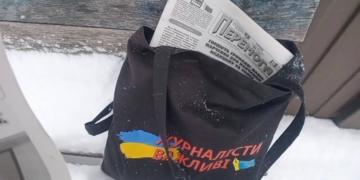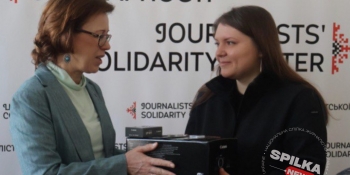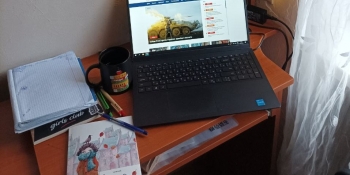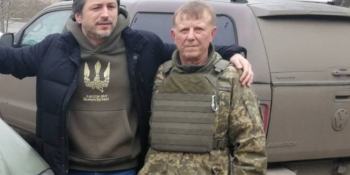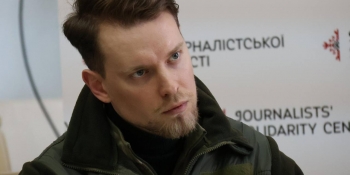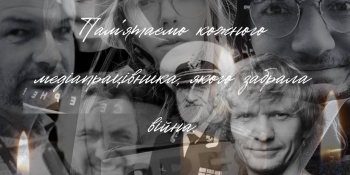On February 24, Anna was woken up by a call from her mother. It was very early, at 4:50 a.m., and therefore did not portend anything good.
“My mom said that the war had begun. At first, I didn’t understand. It was still almost night, and it seemed that it was all a dream, because it was impossible to believe in such a thing,” the journalist recalls that terrible morning.
But powerful explosions, like a cold shower, quickly “awakened” consciousness. The muzzles of tanks were advancing on the peaceful Kherson people from all sides. The city was one step away from full occupation.
“A powerful explosion was heard. My mom works in the center and lives a little further. I called her, but she did not pick up the phone. It was scary, scary thoughts were creeping into my head. Then, when she called me back, it turned out that there were tanks in the city: they were driving through the streets and shooting, as if announcing that they had “come,” Anna added.
Only instead of traditional welcoming bread and salt on a towel, the occupiers received fierce resistance from Kherson residents.
“Protests began. I call them “protests of indomitability.” People came out to prevent anyone with heavy equipment from entering the city, but the occupiers didn’t care. I thought that they would come, and then in a day or two everything would be over. But not only in two days, but also in two weeks, nothing was over. I was very afraid of nightfall. Then in the news we saw that they enter some private houses, apartments, take away and kill people,” Anna Moskaliuk said.
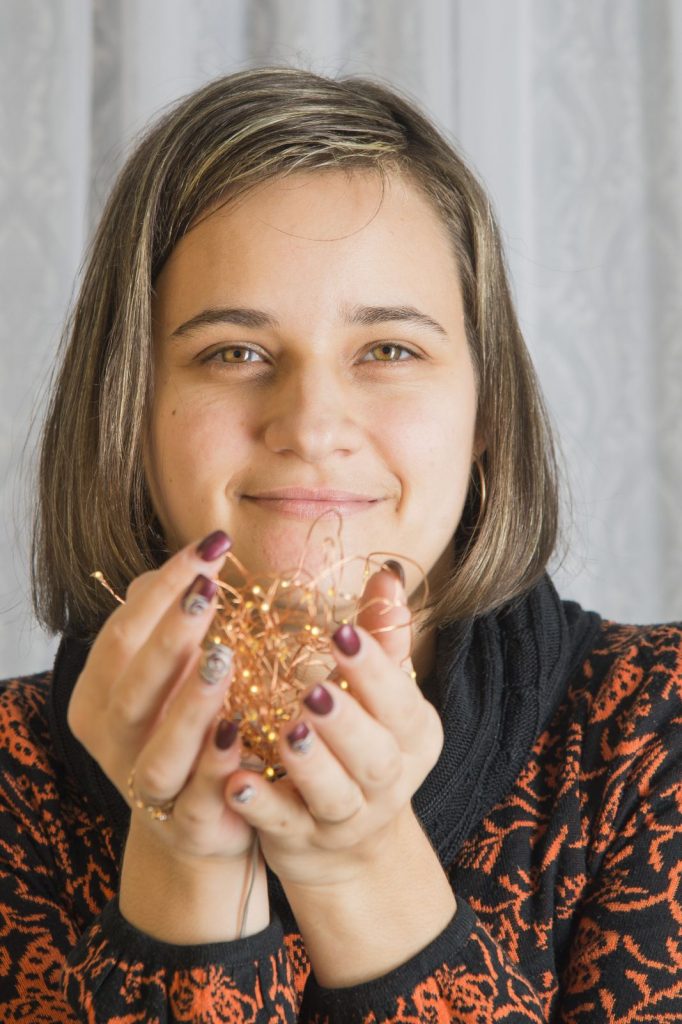
“A tank stopped, and an occupier asked the child: “Do you want to shoot?”
But it wasn’t the worst thing either. One day, Anna was walking with her son on the playground. And it was right next to him that the tank with a letter “Z” on it suddenly stopped. A soldier climbed out of the hatch and carefully looked at Anna’s son.
“…And the occupier asked the child: “Do you want to shoot?”. It was very scary. I took the child, and we never left the yard again,” with a trembling voice says the media woman recalling what happened.
“Once my son asked me: “Whose soldiers are these? Are they good or bad?” I said that these are Russian soldiers and they are bad. He understood everything,” Anna is convinced.
“I understood: if I say something wrong, we will just be torn to pieces”
About two months of being in the occupation became extremely unbearable. Almost every week, the journalist’s family packed and unpacked things. In the end, Anna said: “Either we all leave, or no one leaves…” In two hours, they got together and left the house. Empty city streets. Cars of civilians shot up. Burned out occupiers’ machinery. These terrible pictures were imprinted in the woman’s memory forever.
“It is impossible to forget that trip, I will remember it for as long as I live. The trip of fear, death and the unknown. When we left the central roads of the city, we saw broken cars. Just in front of us on the central street of the city, a car with people who tried to leave a little before the end of the curfew was shot,” Anna said describing the beginning of the evacuation.
We managed to quickly go past the roadblocks on the way out of Kherson. Ruscists checked almost nothing. But the closer Anna’s family got to the demarcation line, the more meticulous the invaders became.
“At some checkpoints, they were very funny, because they did not look like soldiers, and at others there were Kadyrov’s fighters “these were very scary and fully armed, they had everything protected: head, face, hands, legs, back, belly… When we almost reached Bashtanka (it was the sixth or seventh checkpoint), the occupiers there were dressed in old tracksuits, old sneakers and gloves for gardening (as I understood back then, they had taken all that staff from the local residents). They were carrying automatic weapons. One says to the other: “Go to their car because they were filming us. She doesn’t have the right to shoot my face because I don’t want to be on their TV.” He came to me, gave a gesture for me to open the door, and said: “Get out.” “When I sit a lot, I can’t walk very well because I had a spinal injury. I took out all the things I had. He saw my sore legs and said: “What are you worried about, we came to visit you.” I understood: if I say something wrong, we will simply be torn to pieces. I said: “I don’t need such guests, I need to go home, I have a child behind me.” And I started to cry. Then he withdrew and allowed them to go on,” says the journalist.
For the second time tears appeared in Anna’s eyes from happiness. After passing through the gray area, she finally saw the blue and yellow flag and our military.
“They stood in the bushes and gestured us to drive faster. There was a roadblock further on. We stopped. I got out of the car and hugged that guy. I perfectly understood that these people protect me, they will not do anything wrong to me or my children,” says the journalist.
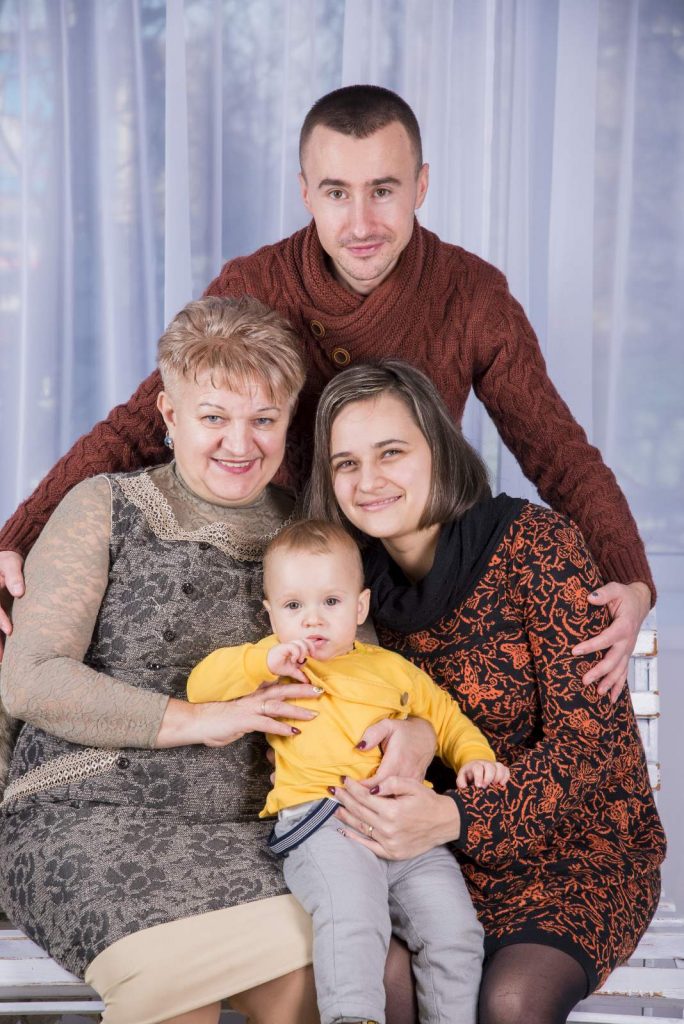
“I started missing Kherson right away”
Anna along with her family now lives in Kalush. She takes care of her son, who will soon be three years old, and her husband works. Of course, she follows the news from Kherson very carefully and plans to return home next summer.
“I started to miss Kherson right away. I am a very warm-hearted person, it is difficult for me to adjust and get used to new conditions. It was very painful to realize that we were leaving the city into the unknown, that this was a journey for an indefinite period. It was necessary to understand: it will not be possible to pack up and go home at any moment, and this feeling is simply unbearable. I really want to be at home next summer, in my native sunny city,” says Editor of the Hryvnia newspaper Anna Moskaliuk.
Journalists are important. Stories of life and work in the conditions of war is a cycle of materials prepared by the team of the NUJU with the support of the Swedish human rights organization Civil Rights Defenders.





